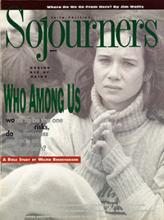Fyodor Dostoevsky once said if you want to understand a nation, look into its prisons. It has also been said that a society is only as healthy as the way it treats dissidents. A look into U.S. prisons to determine the health of our society reveals that the United States has the highest rate of incarceration of any industrialized country and that there are U.S. citizens behind bars for their political beliefs or actions.
The U.S. government routinely denies that it holds political prisoners. But at an International Tribunal on Political Prisoners in the United States, held December 6-10, 1990, in New York City, lawyers, political activists, and former prisoners testified that the U.S. government uses its prisons to suppress internal dissent, and a panel of eight international judges ruled that the United States is jailing people because of their politics, in violation of international law.
Freedom Now!, an amnesty group for U.S. political prisoners and one of 88 organizers of the tribunal, currently recognizes more than 100 political prisoners in this country. Imprisoned political activists come from a range of movements -- from Native Americans defending their treaty rights to members of the Black Liberation Army -- and use differing tactics in their struggles, and issues around the use of violence have led to debates about how such prisoners should be supported. But one thing all imprisoned activists have in common -- and one thing political and human rights groups agree on -- is that the U.S. government has abused its legal system to get them behind bars, and that, once incarcerated, they are singled out for brutal treatment.
"These are people working for social justice, challenging the U.S. government, and they are being persecuted," asserts Rev. Michael Yasutake, director of the Prisoners of Conscience Project of the National Council of Churches (NCC).
Read the Full Article
